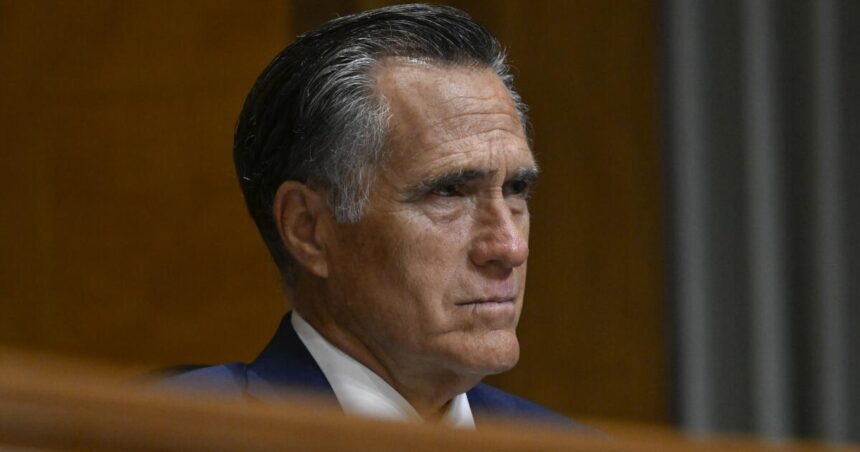Mitt Romney delivered his farewell speech before the U.S. Senate in early December. It isn’t hyperbole to say it marked the end of an era.
Romney’s time in public service, which has spanned well over two decades, will be considered historic — he is the only American to serve as governor of one state and senator for another, as well as presidential nominee for a major political party. But perhaps more important, Romney’s departure, along with others recently, represents the end of a period in which bipartisanship and dealmaking have been valued, or even aspired to, in Washington.
What we are left with is a Senate — and politics in general — that is too much like the House of Representatives: fundamentally partisan and majoritarian, less interested in cutting deals or passing major legislation, and far more inclined toward showmanship than workmanship.
Consider other departures from the Senate, including Democrats-turned-independents Joe Manchin III and Kyrsten Sinema, who conclude their service this year. And in the GOP, Rob Portman of Ohio, Richard Shelby of Alabama, Pat Toomey of Pennsylvania and Roy Blunt of Missouri, who left the chamber when their terms were up in 2023. The Republicans were firm in their conservative principles but welcomed opportunities to work with legislators from the other side of the aisle. Numerous examples can be found of similar recent departures from the House of Representatives as well.
, typically gracious, acknowledged that his significant successes were built on partnerships with others, and that his “life’s work has been a group affair.” In the Senate, he has been a linchpin for bipartisan legislation on issues as eclectic as electoral reform, pandemic-era economic relief, marriage rights and infrastructure development. As governor of Massachusetts, he had a record of fiscal conservatism and reform. And as a presidential candidate, he sounded early warnings about the dangers of Vladimir Putin and a resurgent Russia and presaged the increasingly tense relationship between the U.S. and the People’s Republic of China.
But of all his many accomplishments, it’s clear there is none he is prouder of than his effort to bring affordable health insurance to every resident of Massachusetts. Indeed, elements of “Romneycare” made their way into Obamacare, or the Affordable Care Act, and the Massachusetts law was the first major stroke of bipartisanship in Romney’s career in public service. It attracted the overwhelming support of state legislators from both parties, with the late Massachusetts Sen. Ted Kennedy — whom Romney ran against (and lost to) for U.S. Senate in 1994 — standing beside him when he signed the state health reform legislation into law in April 2006.
The irony is that Romney’s bold healthcare bipartisan dealmaking may have signaled the beginning of the end of the era in which working together advanced one’s political career. The tea party movement burst onto the political scene in 2009 and foretold a time just a few years later, when Romney’s signature gubernatorial achievement would turn into an albatross in his presidential campaign, as Washington battled over Obamacare. The Affordable Care Act had seeming structural similarities with Romney’s reforms, most notably the inclusion of an individual mandate for health insurance. (The provision was that Congress and then-President Trump effectively eliminated the requirement from Obamacare in 2017.)
I served as Romney’s policy director in that 2012 campaign, and we were constantly working to emphasize the benefits of the Massachusetts healthcare reforms without at the same time appearing to extol the ACA. No matter that Romney’s was a state plan and, as he argued, state policies might not be well-suited for the federal government. Rather than a badge of honor, Romney’s ultimate act of bipartisanship was seen by some Republican primary voters as a scarlet letter.
In the years since that 2012 campaign, we have witnessed the breaking apart of the political middle. The rhetoric around the 2024 election demonstrated that common ground among Americans is shrinking by the minute. And voices on both the far left and right have gained in notoriety and influence.
To close his farewell speech, Romney warned of the challenge created by those “who would tear at our unity.” It is a real challenge indeed, and one that we are sadly less able to confront with Romney and others like him gone from the Senate and public service.
Lanhee J. Chen, a contributing writer to Opinion, is a fellow at the Hoover Institution and the director of domestic policy studies in the public policy program at Stanford University. He was a candidate for California state controller in 2022.










